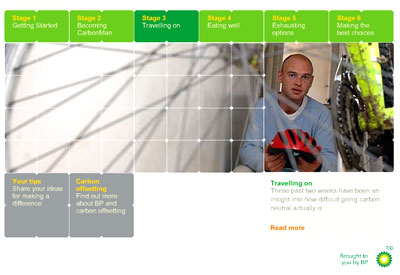
Published on Guardian Unlimited
THESE PAST TWO WEEKS have been an insight into how difficult going carbon neutral actually is. I got all excited about wind power, and switching energy suppliers, and sent off an email to about 50 people encouraging them to do it. About 10 replied saying they would look at it. Three said yes they'd definitely do it. Another one said she'd already switched but did I know anything about "renewable gas" suppliers? "I've looked, but can't see the wood for the trees," she wrote. There is an awful lot of confusion out there.
One who wasn't confused was an old friend from Edinburgh, Dr Neil McKay. He emailed me about his efforts to go carbon friendly when he moved house in Northumberland. "I have researched low-carbon living in detail when thinking about home renovations. I live next door to Kielder Forest, the largest man-made forest in Europe. Yet installing, servicing and gaining a regular supply of wood pellets for a wood-pellet burning stove is difficult. They may have to be flown in from Eastern Europe."
He was quoted £3,500 to install a boiler and flue which runs on wood pellets - a zero-carbon-rated fuel, and highly efficient. "How someone can charge £3,500 for installing a boiler I will never know," he wrote.
To him, it's the system of government grants that is flawed. To get a grant for solar panels, a windmill or a wood-burning stove, you need to use an accredited supplier and installer: "Until more accredited installers come online this amounts to a pricing cartel. They are clearly profiteering. [You get] some quality control, perhaps, through the grant system, but come on."
That's at the grass roots. Elsewhere, all the big mouths are talking about climate change and carbon neutrality too. From George Monbiot's "stop flying" articles to the Economist's 18-page climate change supplement to Al Gore's film to David Cameron at the Tory party conference. We're being urged to count our carbon from all sides.
On my own quest to reduce my carbon footprint I decided to look at my travel. I don't own a car and use public transport pretty much all the time. I get the Tube to work most days, unless I work at home, cycle here and there locally, and get trains to see family in Brighton, Cheltenham and Edinburgh.
How friendly is that, I thought? I asked Transport for London, the body responsible for London's trains, Underground and buses, if they knew. They did. In fact they have a whole policy team dedicated to finding out. They were gearing up for the launch of a "climate-action London" campaign when I met them.
Isabel Dedring surprises me. Smart, tough, lean and American she fires off points of carbon-fact like a golfer on a driving range.
London is responsible for 7% of all UK CO2 emissions. That's 42m tonnes a year. Transport accounts for 21% of that - about 10m tonnes. That 10m tonnes can be pie-charted into the following sectors:
Car and motorcycle: 5m tones (49%) Road freight: 2.3m tonnes (23%) Ground-based aviation: 1.1m tones (11%) Bus: 500,000 tonnes (5%) Taxis and minicabs: 400,000 tonnes (4%) National rail: 400,000 tonnes (4%) Underground: 400,000 tonnes (4%)
Ground-based aviation? That's from the planes at London Heathrow and City airports only (not Gatwick, Stanstead or Luton) landing, taking off and taxiing on the runway. Monbiot's right about all that: "We've Got To Stop Flying".
Dedring's colleague, Mark Evers, a young engineer who looks like Hugh Jackman (Wolverine in the X-Men films), leads me through the figures for the Tube.
The Underground system uses one terawatt of energy a year. (That's 3.6% of London's total energy use, and, the press officer at ecotricity works out for me, would need 250 75m-high windmills to power.) It gets 10% of its power from a green tariff already, and uses technology to convert braking energy back into electricity. Sadly, planned new rolling stock is actually going to be heavier, which means energy consumption will go up. Dedring admits they need to speak to Japan about this, where they make fast, light trains, not slow, heavy ones.
The network is responsible for 7.6 billion passenger kilometers a year. Which means, Evers assures me, that each kilometer I travel by Tube adds 40g to my carbon footprint. My daily journey to work in central London is 16km one way. There and back that's 1.28kg a day. Just over 5kg a week. Say 45 weeks a year doing that or a similar journey... it works out at 230kg a year added to my carbon footprint by taking the Tube.
London buses, based on average occupancy of 15 people, have a footprint of 80g of CO2 per kilometer, double the Tube. Rail 60g. And the car? The Department for Environment says the average petrol car has a footprint of 180g per km. (Obviously not 4WD Chelsea tractors - they're nearly 400g a kilometre). So the same journey would emit 1,036kg of CO2.
Car share with four people though, and your personal footprint would be 258kg - not far off the Tube.
If car sharing isn't always practical, and the purchase of a new car becomes unavoidable, then diesel is definitely something to think about with a potential 20% less emissions. And what about electric cars? Less than 20g per kilometer. G-Wiz - it's either that, or my bike.
Websites I have been on this week
Al Gore's movie An Inconvenient Truth
www.climatecrisis.net
The Economist - free download of its climate change report
Defra- Department for Environment
How much CO2 does your car produce?
www.vcacarfueldata.org.uk/
How far is your journey to work?
www.theaa.com/travel/index.jsp
The G-Wiz electric car
www.goingreen.co.uk








0 comments:
Post a Comment